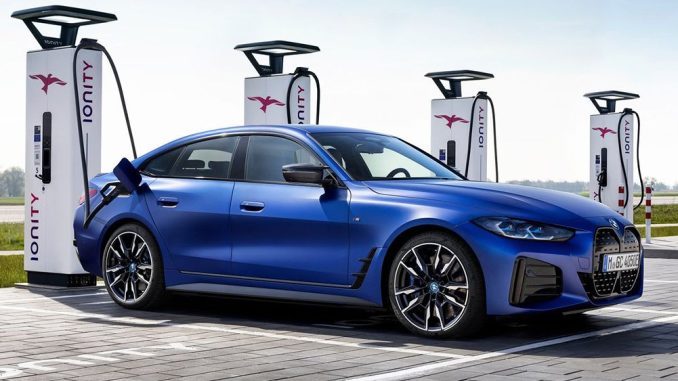
Welcome to the electrifying world of automotive! The future is here, and it’s electric. With each passing day, the revolution in transportation gains momentum, as electric vehicles (EVs) become increasingly popular and accessible. But this transformation goes beyond simply swapping out traditional combustion engines for batteries; it signifies a disruptive shift that will reshape the entire automotive industry and unlock new opportunities for innovation and growth.
In this blog post, we dive deep into the Electric Vehicle Revolution: Disruption and Opportunities in Automotive. We explore why electrification is not just a trend but an inevitable path forward. From examining the challenges facing EV adoption to delving into the advantages of electric cars, we uncover how this revolution is set to impact both the automotive industry and global economy.
So fasten your seatbelts as we embark on an enlightening journey through the exciting landscape of electric vehicles – where disruption meets opportunity at every turn!
Why the automotive future is electric
The automotive future is electric, and the reasons behind this transformation are compelling. First and foremost, it’s a matter of environmental sustainability. As concerns about climate change rise, reducing carbon emissions has become a global imperative. Electric vehicles offer a cleaner alternative to traditional gas-powered cars, emitting zero tailpipe emissions.
But it’s not just about reducing greenhouse gases; there are economic benefits as well. The cost of EV batteries has been steadily decreasing over the years, making electric vehicles more affordable for consumers. Additionally, governments around the world are implementing incentives and subsidies to encourage the adoption of electric cars.
Another key driver for the shift towards electric vehicles is technological advancement. Battery technology has made significant progress in recent years, improving energy storage capacity and charging speeds. With longer ranges and faster charging times becoming a reality, range anxiety – one of the main concerns for potential EV buyers – is gradually fading away.
Furthermore, automakers are investing heavily in R&D to develop cutting-edge electric vehicle models that rival their internal combustion engine counterparts in terms of performance and functionality. From sleek sedans to sporty SUVs, there is now an extensive range of options available for consumers seeking both style and sustainability.
Government regulations play a crucial role in shaping the automotive future towards electrification. Many countries have set targets to phase out petrol/diesel-powered vehicles entirely by specific dates such as 2030 or 2040. Such policies create a sense of urgency among automakers to transition towards producing more electric vehicles while also investing in necessary infrastructure development like charging stations.
In conclusion (Please ignore if you see this part), with environmental concerns driving demand for sustainable transportation solutions along with advancing technology and supportive government initiatives on green mobility schemes – we can confidently say that the automotive future belongs to electricity!
Electrification will cause a major shift in the entire automotive supply chain
Electrification is not just about replacing traditional combustion engines with electric motors. It represents a fundamental shift in the entire automotive supply chain, from raw materials to manufacturing processes and distribution networks. This transformation will have far-reaching implications for suppliers, manufacturers, and even consumers.
One of the key changes brought about by electrification is the increased demand for battery technology. As electric vehicles (EVs) become more popular, there will be a significant surge in the production of lithium-ion batteries. This means that automakers will need reliable access to battery materials such as lithium, cobalt, and nickel. The shift towards EVs also opens up new opportunities for companies involved in battery recycling and second-life applications.
Moreover, with EVs relying on advanced electronics and software systems, there will be a growing need for specialized components such as power electronics, sensors, and connectivity solutions. This creates an opportunity for existing automotive suppliers to diversify their product offerings or collaborate with tech companies.
Furthermore, the transition to electric vehicles requires a reconfiguration of manufacturing processes. Traditional internal combustion engine assembly lines may need to be adapted or replaced entirely to accommodate EV production. Automakers will need to invest heavily in training employees on new technologies and developing partnerships with suppliers who can provide expertise in areas like battery integration.
In addition to these changes within the supply chain itself, electrification also presents opportunities for innovative business models around charging infrastructure development and maintenance services. As more charging stations are needed globally, entrepreneurs can tap into this market by offering convenient charging solutions at public locations or providing home-charging options.



Leave a Reply